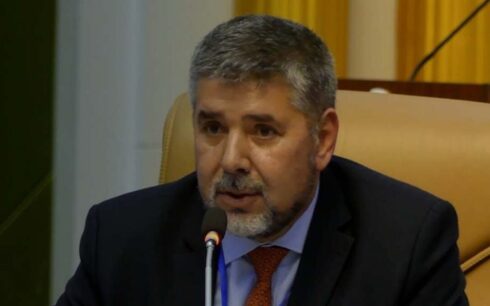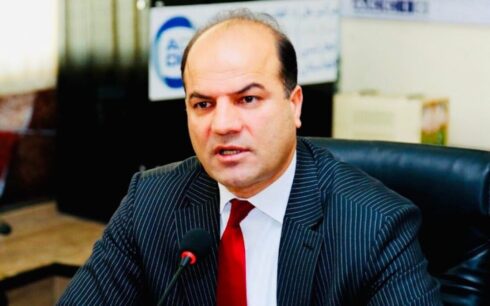Is the world finally changing its approach toward the Taliban? Recent developments suggest that the international community’s patience with the Taliban’s rigid policies and extremist interpretation of religious teachings may be wearing thin. Efforts are underway to hold the group accountable to Afghanistan’s obligations under international conventions and agreements it joined before the Taliban’s rise to power.
Since the Taliban’s dramatic return to power in Afghanistan more than three years ago, they have shown little willingness to heed the voices of the Afghan people or the international community. Over this period, they have aggressively defended their misogynistic and internationally condemned policies, dismissing them as domestic issues. This stance mirrors the defense of atrocities like Auschwitz in Nazi Germany or the Soviet Union’s Gulags as “internal matters.”
In these three years, the Taliban have proven themselves to be as brutal as—if not more brutal than—the totalitarian regimes of Stalin or Hitler. They have repeatedly demonstrated that they are a fundamentally authoritarian group that recognizes only their worldview, rejecting all other perspectives as contrary to Afghanistan’s religion and culture. Afghanistan, under their rule, has not only become a safe haven for transnational terrorist groups like al-Qaeda and ISIS but also a center for exporting anti-human ideologies. Through Taliban-run jihadist schools, millions of Afghan children and adolescents are being indoctrinated to wage war against the so-called “infidels.”
The Taliban have reduced the world to a simple binary of black and white, a division made clear in the speeches of their leaders. When Taliban leader Hibatullah Akhundzada says, “Even if the world uses nuclear bombs against us, we will not abandon our policies,” it is evident that the Taliban are unwilling to adopt any kind of flexibility. They appear frozen in a bygone era of human history.
Despite several global conferences and countless appeals from human rights organizations and the United Nations over the past three years, urging the Taliban to lift restrictions and acknowledge the realities of Afghanistan and the world, the group has continued to mask its rigid policies with religious justifications. Their most recent law on “Commanding the Good and Forbidding the Evil” imposes sweeping restrictions on Afghan society, particularly targeting women and girls. This law clearly illustrates the Taliban’s authoritarian control over the private lives of citizens. Given this harsh reality, the international community appears to be reaching a turning point in its approach to the Taliban.
A shift in global policy: Women’s role in Afghanistan’s future
A key moment signaling a shift in global policy was a meeting on women’s rights held on the sidelines of the United Nations General Assembly in New York. The gathering sent a strong, decisive message. Among the participants were two prominent Afghan women—Fawzia Koofi, a former parliamentarian, and Habiba Sarabi, a former minister of women’s affairs—along with international figures advocating for Afghan women’s rights.
Rosemary DiCarlo, the U.N. Under-Secretary-General for Political Affairs, who also chairs the Doha talks, warned that the Taliban’s policies could bring the negotiations to a standstill. At the third Doha meeting, which included Taliban representatives, Afghan women and civil society were barred from participating—a move that the Taliban falsely interpreted as international approval of their regime.
However, at the New York meeting, hosted by the Swiss Confederation, a different tone emerged. DiCarlo’s remarks indicated that the international community is beginning to shift its policies in opposition to the Taliban. Hollywood actress Meryl Streep, who also attended the meeting, delivered a stinging critique of the Taliban’s treatment of women, remarking that in Kabul, “a female cat and a squirrel have more freedom than Afghan women.” Streep urged Muslim-majority countries, particularly Sunni-majority nations, to stop ignoring the Taliban’s actions, warning that their policies could serve as a wake-up call for the rest of the world. Swiss President Viola Amherd echoed this sentiment, describing the Taliban’s laws as a form of “systematic erasure” of women. The meeting, focused primarily on women’s right to work, education, and civil liberties, signaled that the world’s tolerance for Taliban appeasement is dwindling. It is becoming clear that engagement with the Taliban, as it stands now, is no longer sustainable.
A legal reckoning for the Taliban?
Another major development came when Germany and three other countries began efforts to bring the Taliban to the International Court of Justice (ICJ) in The Hague. The ICJ, based in the Netherlands, could potentially prosecute Taliban leaders for genocide and crimes against humanity. This push for legal action marks a serious global attempt to hold the group accountable.
It seems that the Taliban’s honeymoon is coming to an end. The group is increasingly seen as a global threat, and many nations are no longer willing to tolerate its presence in power. Even regional countries that once maintained close ties with the Taliban, such as Pakistan and Iran, have begun to recognize the dangers posed by the regime. These countries, which had previously engaged with the Taliban during NATO’s presence in Afghanistan, are no longer as supportive as they once were.
In short, the international community has begun a countdown against the Taliban, and it seems that this momentum will only accelerate in the coming days. For Afghan women, who have consistently raised their voices in protest since the Taliban’s return, this could be a significant victory. After centuries of silence, the cry of “Women, Life, Freedom” may finally pave the way for liberation from the clutches of destructive ideologies.
Amir Nikaeen is a veteran Afghan journalist whose work has appeared in both national and international media.
The views expressed in this article are those of the author and do not necessarily reflect the views of Amu.





